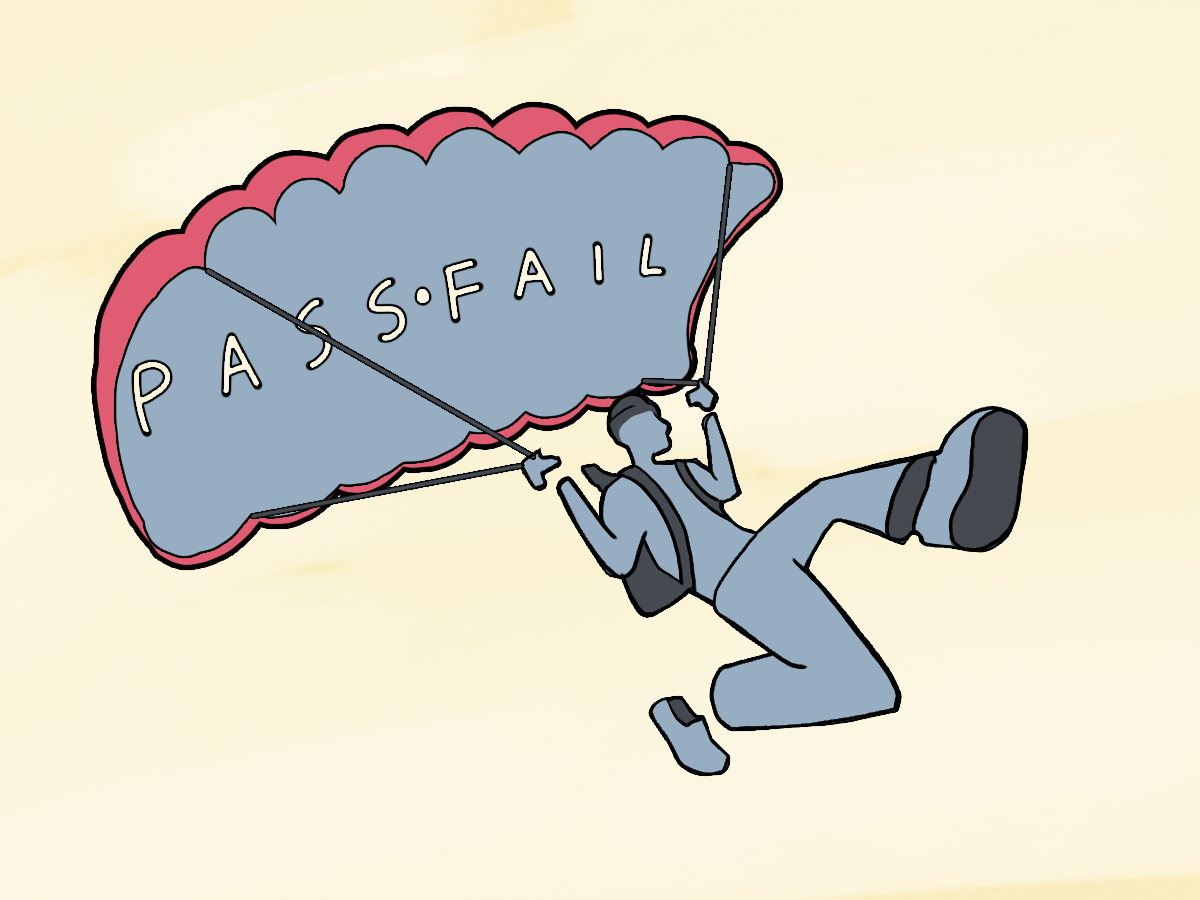While rejected by Concordia’s Senate, the CSU plans on continuing to advocate for pass/fail option
The Concordia Student Union (CSU) is continuing to push for the return of a pass/fail option this semester, despite their requests being denied in the Concordia University Senate.
Concordia University spokesperson, Vannina Maestracci, shared in a statement to The Concordian that “Pass/fail was an exceptional measure taken at the height of the pandemic when all courses had to be remote.”
In the fall 2020 and winter 2021 semesters, Concordia University implemented the option for students to choose to pass or fail one course instead of receiving a grade. These pass/fail marks did not affect students’ overall GPAs, but the pass/fail option was rescinded in the fall 2021 semester as the COVID-19 situation lessened.
According to a CSU survey in October, over 78 per cent of students found the pass/fail option was helpful, and over 79 per cent of students said they wanted Concordia to reinstate it for the coming semesters.
“The pass/fail option was amazing and super helpful. It also eased my worries. But I am very disappointed that they got rid of the pass or fail system now that we’re back in person,” commented a student on the anonymous survey.
In December, the CSU held a joint presentation with Concordia administration, where both the CSU and Concordia administration took turns voicing their opinions of the pass/fail option. Afterwards a vote was held, where the students who voted in favour of pass/fail were outvoted by the administration.
“The big concern for us is that with the introduction of pass fail, even if it’s only for one course, we can’t catch the annual GPA for any student,” said Anne Whitelaw, the Provost and vice-president academic at Concordia University.
Whitelaw explained that the annual GPA is used to identify students who are struggling, specifically those in failing standing. When a student is in failing standing, an email is automatically sent to them, explaining they need to take courses at the Student Success Centre which are meant to help them improve academically.
Before the pandemic, according to Whitelaw, approximately 500 students were taking these courses, but with online school and the introduction of pass/fail, that number dropped to 80. This is because with pass/fail, the university was unable to calculate the annual GPA, meaning the automatic system is unable to tell which students are in failing standing.
“It would take years of programming because for every student, it’s going to be a different course,” said Whitelaw, who explained that the current capabilities of the software used to calculate the annual GPA of each student would not work as intended with the pass/fail option, meaning these calculations would have to be done manually for each student. “We’re looking at calculating it for over 40,000 students.”
“If you look at your transcript, you might not have any GPA on your transcript right now, because we haven’t been able to calculate it for two years,” said Whitelaw.
Eduardo Malorni, the CSU’s general coordinator said “We pushed it as far as we could, but, faculty, staff, and administration voted against it. Which makes it pretty clear, they just didn’t care about the student’s opinion.”
Malorni believes that the university should have other ways to tell if students are struggling, besides the annual GPA — such as having professors identify students who are failing, or have students self-disclose they need academic help.
“The compromise we reached was that [Concordia] would offer a late DISC to students,” said Malorni. “So that instead of students failing their class, if they knew they were under too much stress, especially during final exams […] they could choose to get out without a refund.”
DISC means that a student drops the course with no impact on their GPA, but they must still pay for the course. It is usually two-thirds into the semester. DNE is the last day students are able to drop a class with a refund, and is usually two weeks after the semester starts.
The DISC deadline has been extended to April 18. Malorni explained that the CSU also pushed for an extension on the DNE date, so students would have their tuition reimbursed, but the university refused.
Malorni said that while they were not able to get the pass/fail option for students, the extension of the DISC is still an improvement, as last semester the university extended the DISC date, and between Nov. 9 and Dec. 7 over 2,600 students used the extended DISC.
Graphic by James Fay




